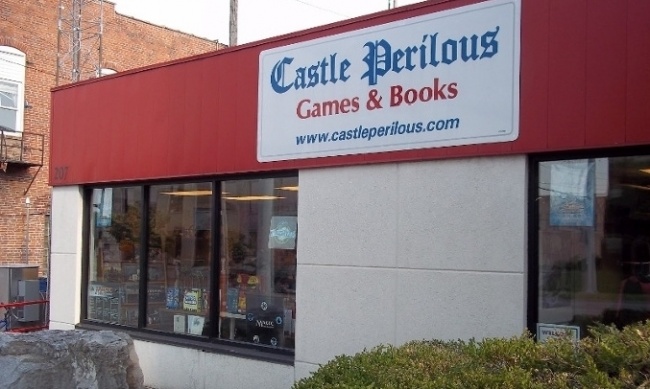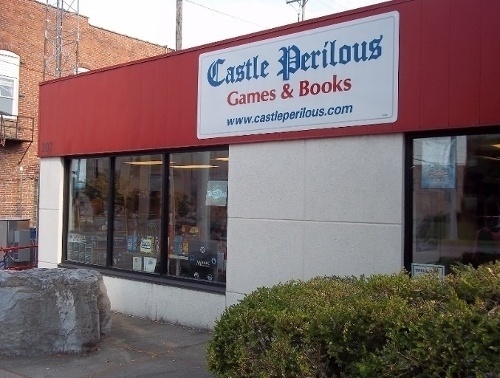Rolling for Initiative is a weekly column by Scott Thorne, PhD, owner of Castle Perilous Games & Books in Carbondale, Illinois and instructor in marketing at Southeast Missouri State University. This week, Scott Thorne explains where games fall in Maslow’s Hierarchy of Needs.
Every once in a while, I like to tell customers, "You don’t really need anything here in the store. Well, maybe the sodas and candy bars, since they are technically food. Everything else in here, you want." However, I just revisited Maslow’s Hierarch of needs and realized that I am wrong about that.
If you took any basic psychology or business classes in high school or college, you ran across Abraham Maslow’s hierarchy of needs. Maslow first put forth the hierarchy in his 1943 paper, A Theory of Human Motivation, which argued humans have a series of needs, some of which are universal and must be satisfied before one can focus on developing the "secondary" higher emotions.
If you haven’t looked at the links above or do not remember your Maslow, he proposed five basic needs:
Physiological. Air, food, water, shelter, sleep, essentially anything needed for our basic survival. This are our most primitive needs and must be met continually, otherwise we become increasingly dissatisfied. Ever notice how irritable people become when sleep-deprived? And irritation from hunger is common enough that the term "hangry" has developed to describe it.
Safety. This involves physical security. We have confidence what we have the resources available (savings, employment) to maintain our physiological needs. According to Maslow, these two needs take priority over everything else.
Social. Also known as "belonging and love" needs, these mark the beginning of interpersonal relationships, the overarching goal of which are social relationships. These include friendships, intimate relationships with a partner of choice and familial relationships. Some of us seek large social circles, others prefer smaller circles.
Esteem. The need to be "comfortable in your own skin," whilst still wanting to improve yourself. Maslow identified two forms of esteem: lower and higher. Lower esteem is the need for respect from others: fame, approval, status, etc. Higher esteem is the need for respect from yourself: freedom, independence, self-respect.
Self-Actualization. Maslow described this level as, "What a man can be, he must be." We work to benefit others with no thought of benefit to ourselves. Donating blood, charitable donations (as long as nothing gets named after you as a result) and parenting (in developed societies where children are not needed to satisfy lower order needs) are all characteristic of self-actualization.
The first four needs (physiological, safety, social and esteem) are classified as "deficit needs." They exist due to deprivation and motivate us to satisfy them. Once we satisfy them, the motivation to do so ends and we focus on other, unsatisfied needs. We also give very little thought to these needs once we satisfy them. Every notice how much people complain about how cold or how hungry they are. Once they get warm or fed, they never comment on how good they feel. The need is satisfied and we move onto the next one. "Being needs" or self-actualization result from the desire to grow as a person. Rather than the lack of anything (Deficit needs), it is the desire to gain or improve oneself that drives being needs.
So what does all this have to do with game and game stores satisfying needs? While they certainly don’t satisfy the first two deficit needs, they certainly do the next two. We enjoy games for their social aspect; even online gamers prefer to play with others when possible and I have never yet met a player who did not want to win, whether against the other players or against the game. So, yes people do need games and, by extension, a place to get them. What type of game are you looking for today?
The opinions expressed in this column are solely those of the writer, and do not necessarily reflect the views of the editorial staff of ICv2.com.

Column by Scott Thorne
Posted by Scott Thorne on April 22, 2019 @ 6:07 am CT



